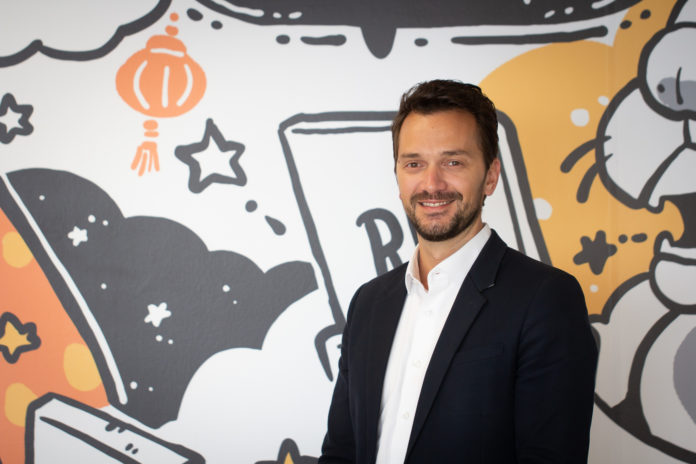Overcoming challenges is a crucial part of any C-suite role but these challenges can often seem like shifting goalposts at times of economic uncertainty, and technological and cultural change.
Looking to the year ahead, new independent research by established recruitment consultancy Robert Half shows that Singaporean business leaders will be facing a broad spectrum of concerns in their role framed by global macro-economic tensions, evolving challenges attached to digital transformation, and a highly competitive skills-short workforce.
The annual study, developed by Robert Half, was conducted in January 2019 by an independent research firm, surveyed 225 business leaders in Singapore. This survey is part of the international workplace survey, a questionnaire about job trends, talent management and trends in the workplace.
Matthieu Imbert-Bouchard, Managing Director of Robert Half, comments on the findings of the research, with tips to companies on navigating the current global climate.
Technology continues to dominate
45% of Singaporean business leaders highlight technological changes as one of their primary external concerns, highlighting the continued dominance of technology on the business agenda. As Imbert-Bouchard says,“From improving customer experience through Big-Data to leveraging AI for enhanced productivity, business leaders have the opportunity to enhance nearly every aspect of their organisation through technology.”
While the business advantages of digital transformation are well-known, business leaders are faced with many hurdles in order to leverage the potential of tech opportunities including sourcing technically-skilled talent in a skill-short market and adapting and upskilling existing workforces to meet future business needs. A failure to do so will not only see businesses miss out on internal benefits, but also fall behind competitors and risk losing a long-term competitive edge. Imbert-Bouchard reminds companies of the need to “drive organisational change, cultivate a workforce who can leverage the potential of the emerging tech, and shore up their organisation against the evolving threats and restrictions specific to their industry.”
Managing change while optimizing growth
As business leaders focus on leveraging tech advances, there is increasing pressure on organisational management to find ways to drive negotiate long-term change at fast-speed and manage the risks and regulations that evolve in parallel to these changes, while also delivering upon their short-term financial goals.
Of business leaders surveyed, this is reflected in a shared concern over the external threats of technological and regulatory changes (45% and 44%, respectively). Business leaders in different fields are faced with unique internal concerns specific to their role, with CIOs most concerned over AI and machine learning (57%) and cyber-security threats (49%) while CFOs are concerned over managing and delivering growth (56%), and increasing regulatory issues (45%).
“Strict new cyber-security regulations mean CIOs have a duty to continually evaluate their current security controls and reporting structures to ensure compliance,” said Imbert-Bouchard. Meanwhile, “the introduction of virtual banking licenses has placed stringent regulatory, compliance, and security requirements at the forefront of many Singaporean CFOs minds, creating a shared demand for compliance and regulatory roles across both fields,” he added.
Talent gap impedes organisational productivity
As digital transformation continues to reframe how businesses operate, companies must focus on their human capital in order to maximize their potential in an ever-changing business landscape.When it comes to talent management, improving productivity is cited as the primary concern by 40% of Singaporean managers, followed by talent retention (32%) and finding the right training for staff (32%).
“With demand for technical capabilities continuing to outpace supply in the local market, Singaporean businesses run the risk of falling behind due to a deepening talent gap that will impede business growth,” Imbert-Bouchard warned.
“The perfect pedigree of technically skilled, highly experienced candidates with excellent interpersonal skills is scarce, so employers need to think longer term about hiring for strong cultural fit and subsequently developing their workforce through training and skills development,” he advised.
“Particularly in a skills-short market where competing companies actively poach talent, companies should continue to fine tune robust staff attraction and retention programs. This should sit alongside a comprehensive professional development and training program to ensure their staff are equipped with the right skills to successfully tackle their company’s digital transformation efforts,” Imbert-Bouchard concludes.
Geopolitical and economic challenges framing business confidence
Global economic volatility, regional political turbulence, and uncertain trade policies underpinned by the US-China trade war have seen Singaporean business leaders take a cautious and wary view of their global growth outlook as major international trading partners navigate their own tightening economic outlook for 2020.
These concerns are exacerbated by uncertain domestic forecasts, with GDP growth stagnating alongside consumer confidence and expenditure. Indeed, 47% of Singaporean business leaders consider economic uncertainty to be one of the top challenges that they will face in their role until 2020.
Imbert-Bouchard suggests that this caution is unsurprising, given the current geopolitical climate: “The global economic market has seen a deceleration, in part due to the US-China trade war and other geopolitical tensions, which have impacted the growth of Singapore’s major trading partners and in turn caused a contraction of domestic economic forecasts. It’s not surprising, therefore, that economic uncertainty is a shared concern across Singaporean leaders, particularly given their geopolitical and economic exposure to Chinese markets,” he continued.
He also shared that “While the specific forces can vary by industry, companies are exposed to macro-volatility and in uncertain times, this can lead to a more strategic approach to future growth plans.”














